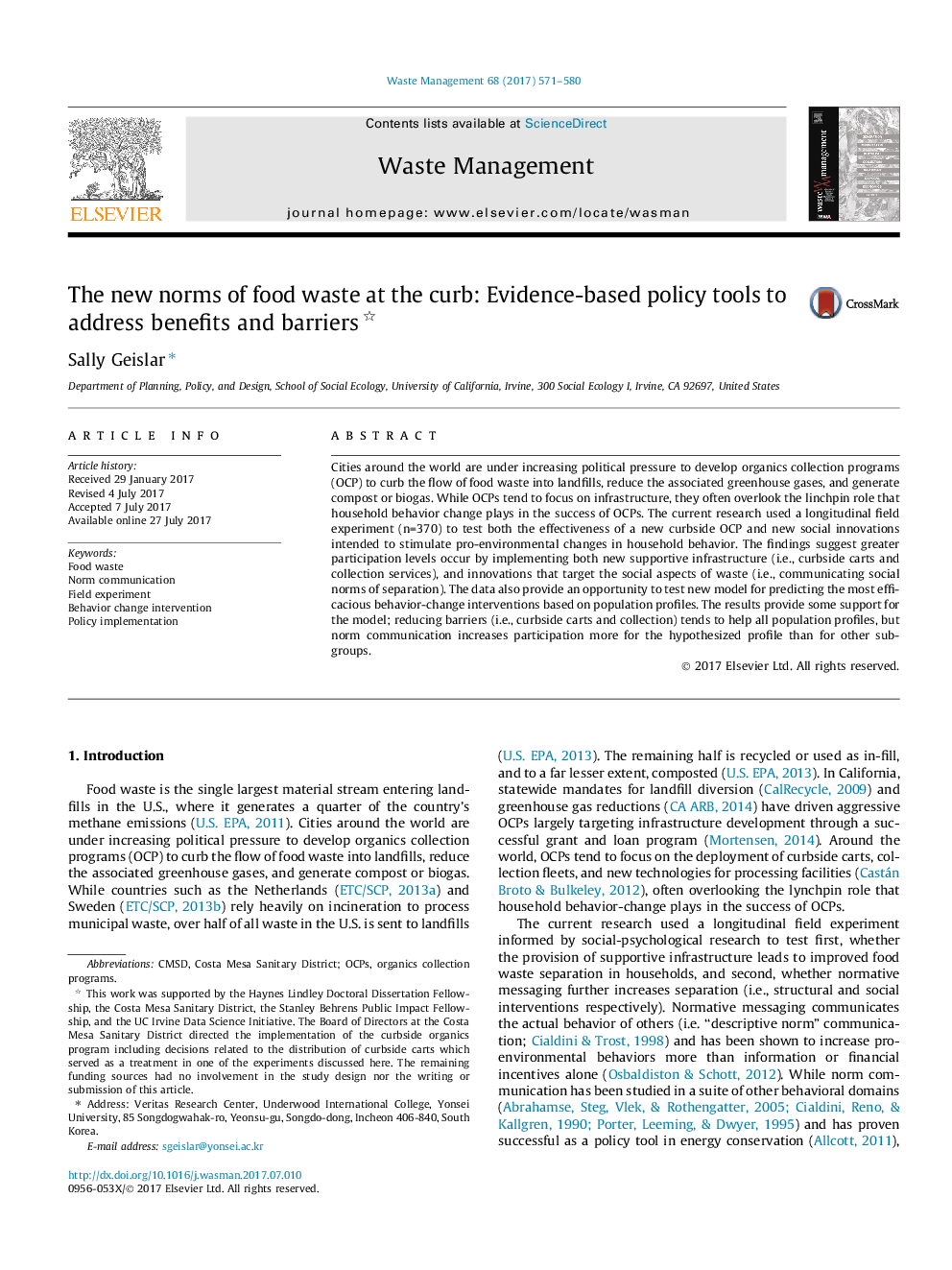| Article ID | Journal | Published Year | Pages | File Type |
|---|---|---|---|---|
| 5756604 | Waste Management | 2017 | 10 Pages |
Abstract
Cities around the world are under increasing political pressure to develop organics collection programs (OCP) to curb the flow of food waste into landfills, reduce the associated greenhouse gases, and generate compost or biogas. While OCPs tend to focus on infrastructure, they often overlook the linchpin role that household behavior change plays in the success of OCPs. The current research used a longitudinal field experiment (n=370) to test both the effectiveness of a new curbside OCP and new social innovations intended to stimulate pro-environmental changes in household behavior. The findings suggest greater participation levels occur by implementing both new supportive infrastructure (i.e., curbside carts and collection services), and innovations that target the social aspects of waste (i.e., communicating social norms of separation). The data also provide an opportunity to test new model for predicting the most efficacious behavior-change interventions based on population profiles. The results provide some support for the model; reducing barriers (i.e., curbside carts and collection) tends to help all population profiles, but norm communication increases participation more for the hypothesized profile than for other sub-groups.
Related Topics
Physical Sciences and Engineering
Earth and Planetary Sciences
Geotechnical Engineering and Engineering Geology
Authors
Sally Geislar,
